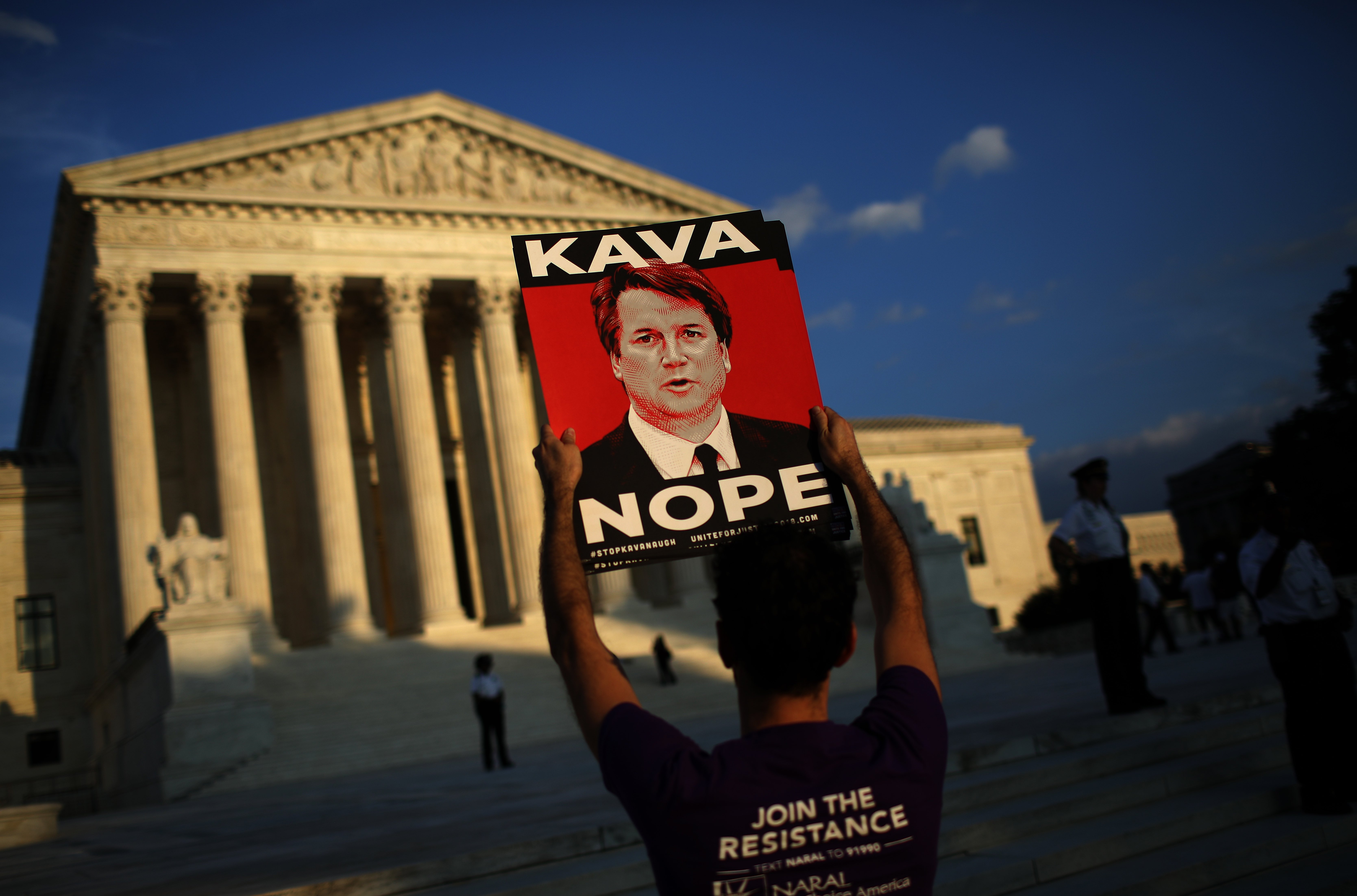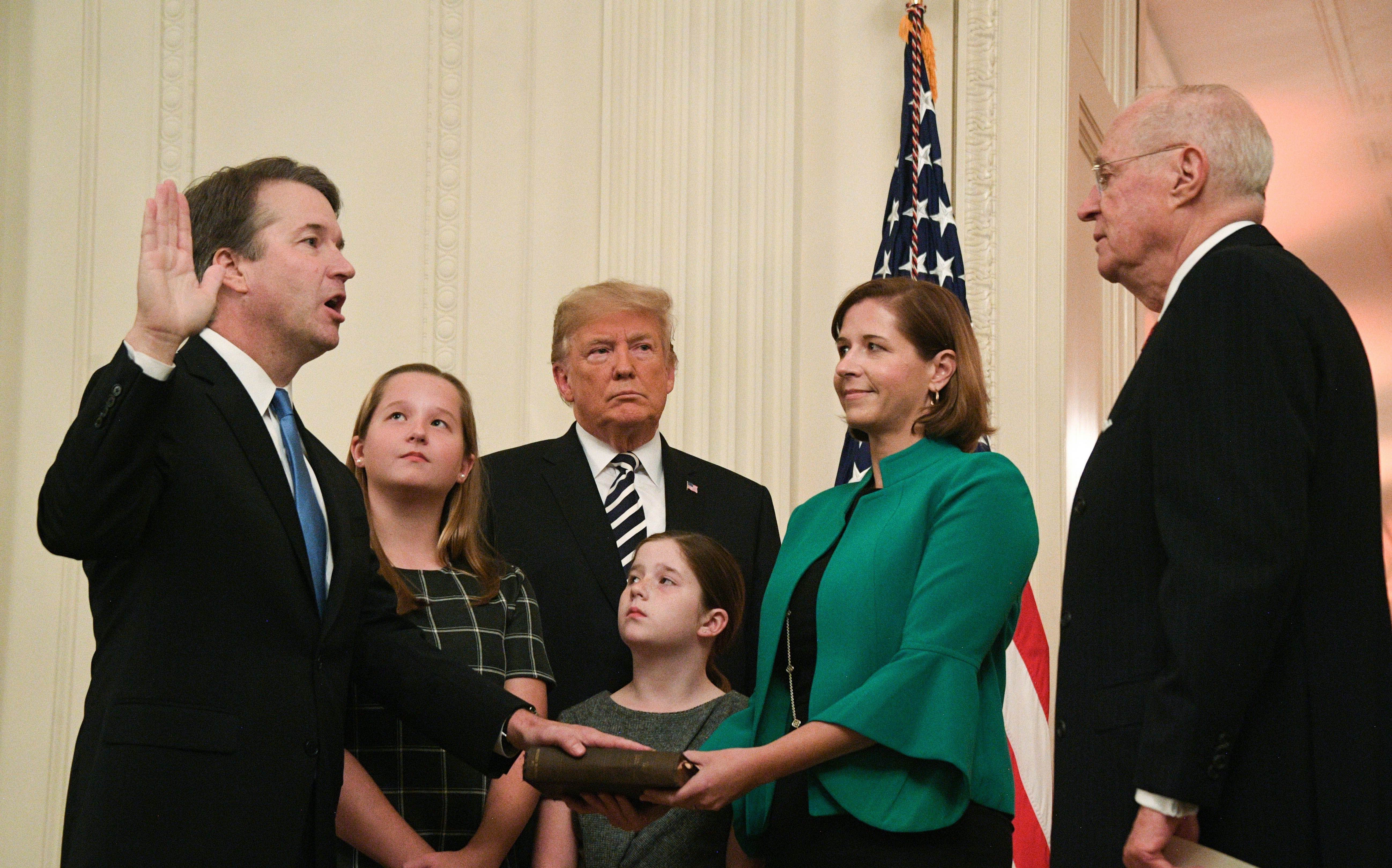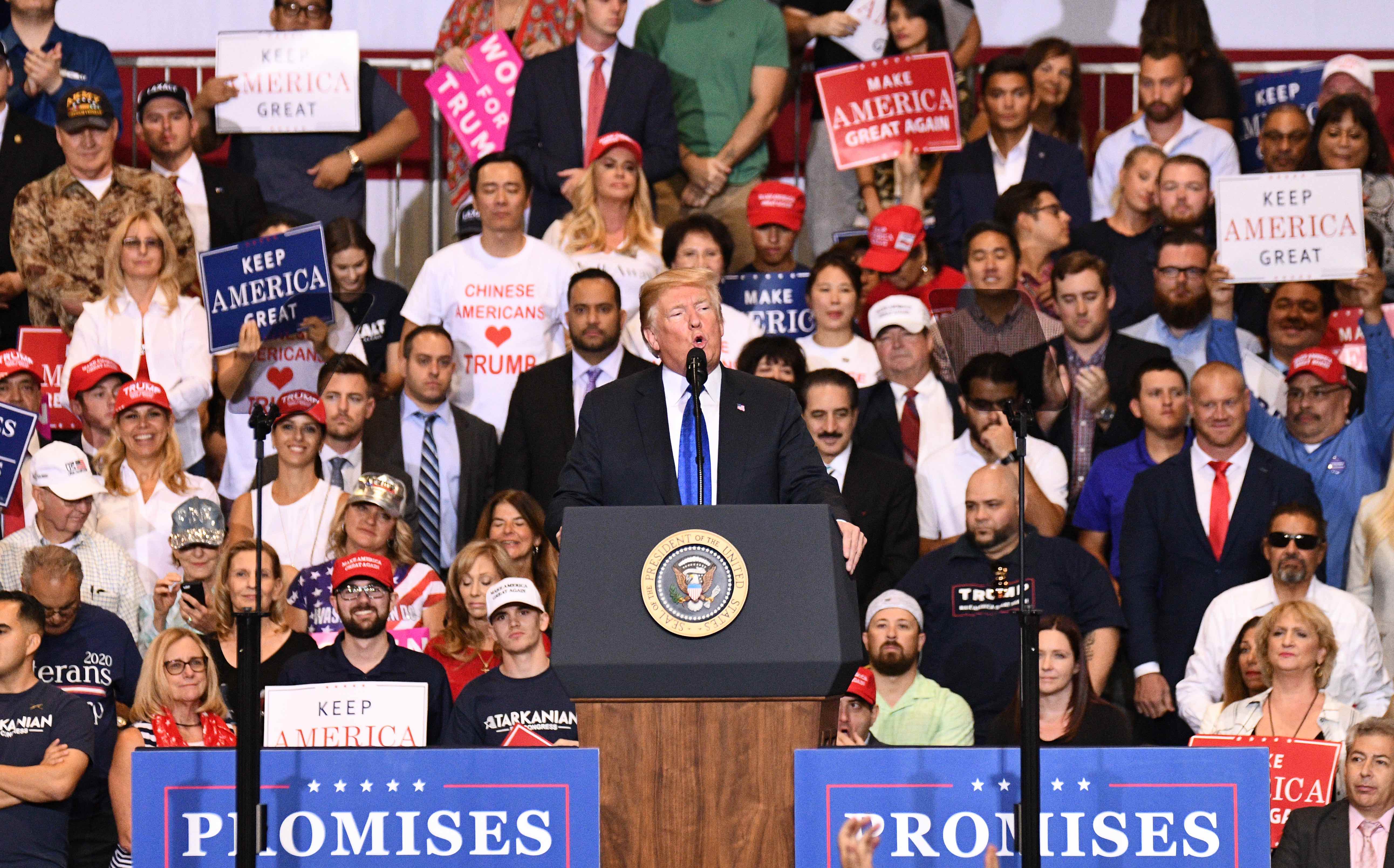
Politics & Society
US Midterms: What you need to know

As Justice Brett Kavanaugh joins the US Supreme Court, many progressives hope the anger over allegations against him will be reflected in the midterm elections, but is it likely?
Published 14 October 2018
The “October surprise” is a an American political term used to describe something – perhaps a natural disaster or a strategically-timed data leak - that emerges in the run up to an election. It’s something that likely impacts polls and possibly even the vote count.
If you spent 2016 dreading a Trump victory, by early October that year you got a surprise of the calibre that felt like all of the nails in all of the coffins: the Access Hollywood tape.

There was candidate Trump confessing either his actual sex crimes or merely the ones playing out in his fantasies. On video. With audio.
Those of us who were assuming a Clinton victory but who’d got a case of the yips when the polls looked close, felt that in that tape we’d found our smoking gun. Here was the one thing that would ensure a liberal victory and spare us from seeing a reality TV star in America’s Top Job.
If, like me, you spent a chunk of November 2016 sobbing, then you’re more than familiar with this rollercoaster: a ride centred on the whole-hearted belief in the mobilisation of voters against a candidate who is bad for women, only to have all that hope shattered.

Politics & Society
US Midterms: What you need to know
Long before ‘grab-em-by-the-pussy’ gate, Trump had been doling out reasons for women to be worried.
Trump told us that he’d pick Justices who would overturn Roe v. Wade. He told us that he believed that women who had abortions should be punished.
The electorate knew all this.
The 138 million Americans who bothered to vote in 2016 (out of the more than 245-million eligible to vote) were armed with the information that Trump was a man with over a dozen sexual misconduct allegations hanging over his head and who was vigorously campaigning to limit women’s bodily freedoms.
The electorate knew all this.
And either they wholeheartedly supported his backward-looking women’s health policy or they were blinded by their red-mist loathing for Hillary. Either they held hold their nose and voted for Trump, or they stayed home and played tiddlywinks.
Flash forward about 500 days. October once again, and maybe not a total surprise, but here’s Justice Brett Kavanaugh with his own suite of hovering sexual assault allegations getting confirmed onto the US Supreme Court.
And once again, progressives are fetishising that smoking gun.

The belligerent frat boy got the job. The victim was mocked by President Trump in front of a baying crowd fervent in their desire to “lock her up”. Republican Senator Orrin Hatch somehow felt it appropriate to tell female protestors to “grow up”.
Once again we’re all seething and once again we’re convinced that we’ve found our rallying cry, our beacon of hope, our life raft that’ll make everything okay at the midterms.
As someone who was in the US to witness the 2016 Presidential election and was doubled-over at the sight of Trump seated next to Barack Obama in the White House, I’ve been through this all before: the smoking gun; the belief that most people are fundamentally decent; dashed hopes; and enough data to tell me that too many Americans don’t care enough.

Politics & Society
Turmoil in Trump land
Back in 1991, a similar scenario played out during the Clarence Thomas’s Supreme Court confirmation hearings – down to three of the same white man faces sitting in judgment. Back then we heard Anita Hill’s accusations. Back then Thomas still got confirmed onto the bench.
In the aftermath, just like in 2018, women got angry enough to seek public office. The “Year of the Woman” label was used to describe that record number of female candidates.
People got excited, people got expectant, and to be fair, some exciting stuff emerged. It wasn’t just a story of disappointed feminists. It wasn’t however a revolution nor any kind of reckoning either.
As we head into the 2018 midterm elections the label “Year of the Woman” is once again being deployed because, after all, in a society fixated on nostalgia, everything old is new again. Record numbers of female and minority candidates are running spurred on by a desperate yen for things to go back to pre-Trump notions of normal.
And I want to be patient and faithful and optimistic.
And then I remember that Trump is behind the Resolute desk. That the pendulum has, since 1992 - and, probably even since 2016 - swung further to the right. That the electorate had all the useful information well in advance of November 2016 and Trump still got elected.
Americans have already been tested and they’ve aptly demonstrated their failure to care. And I’ve never wanted to be more wrong about anything.
The University of Melbourne & Election Watch are co-hosting a US midterms event with the American Chamber of Commerce on Wednesday 17 October at University House. Click here for more details.
This article was co-published with Election Watch.
Banner: Getty Images